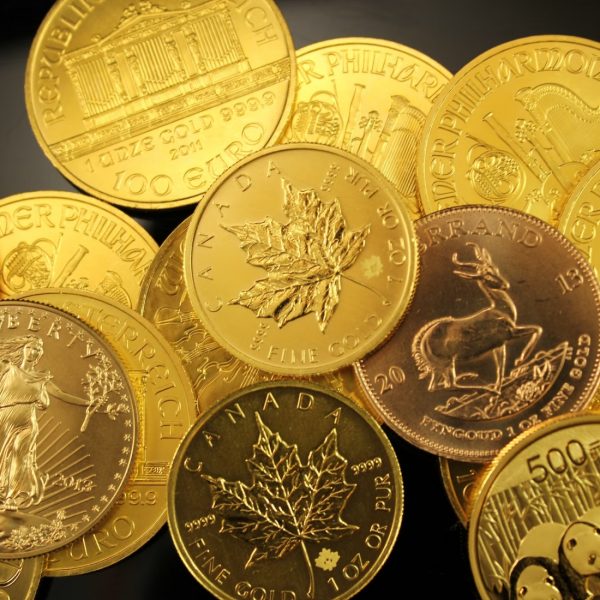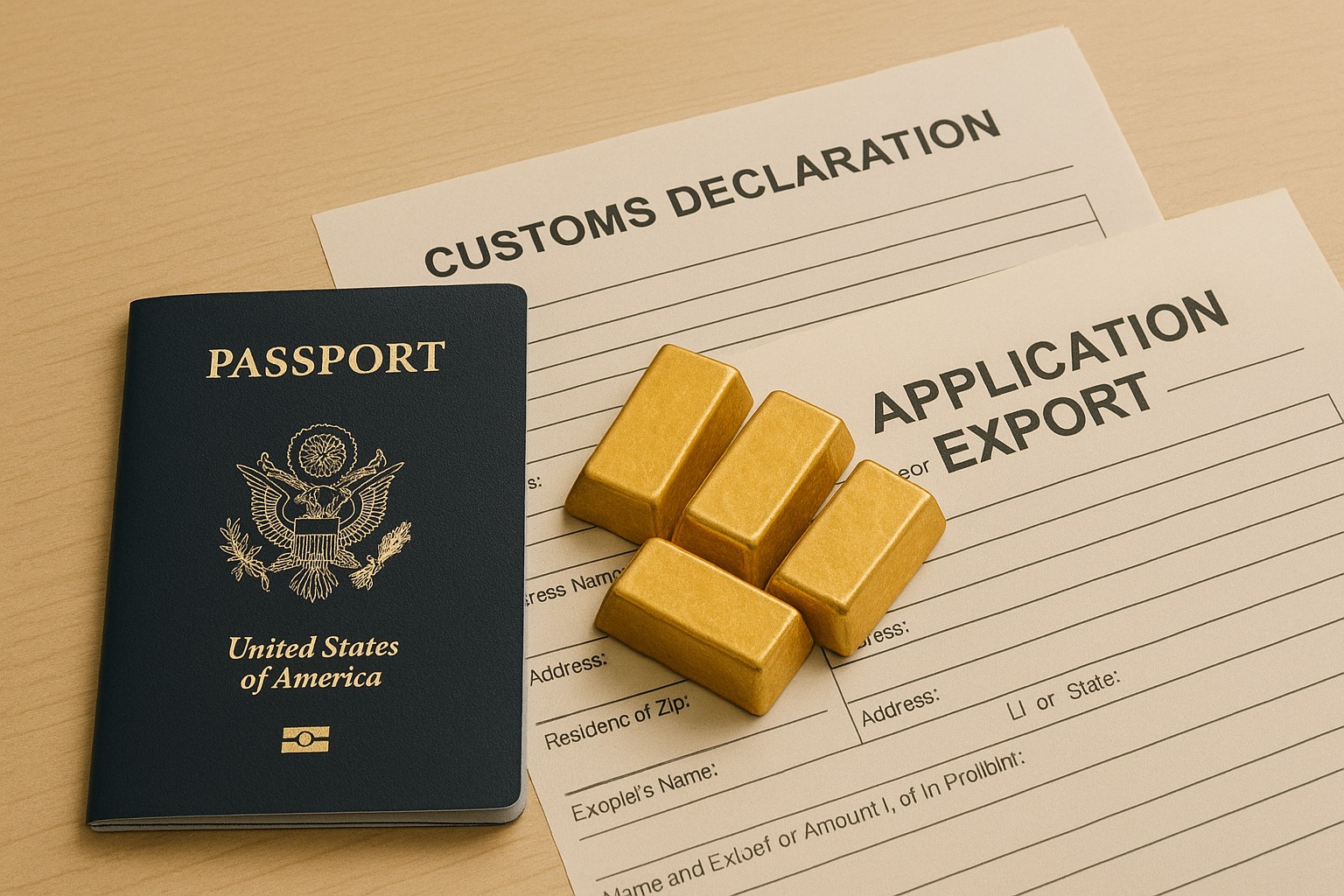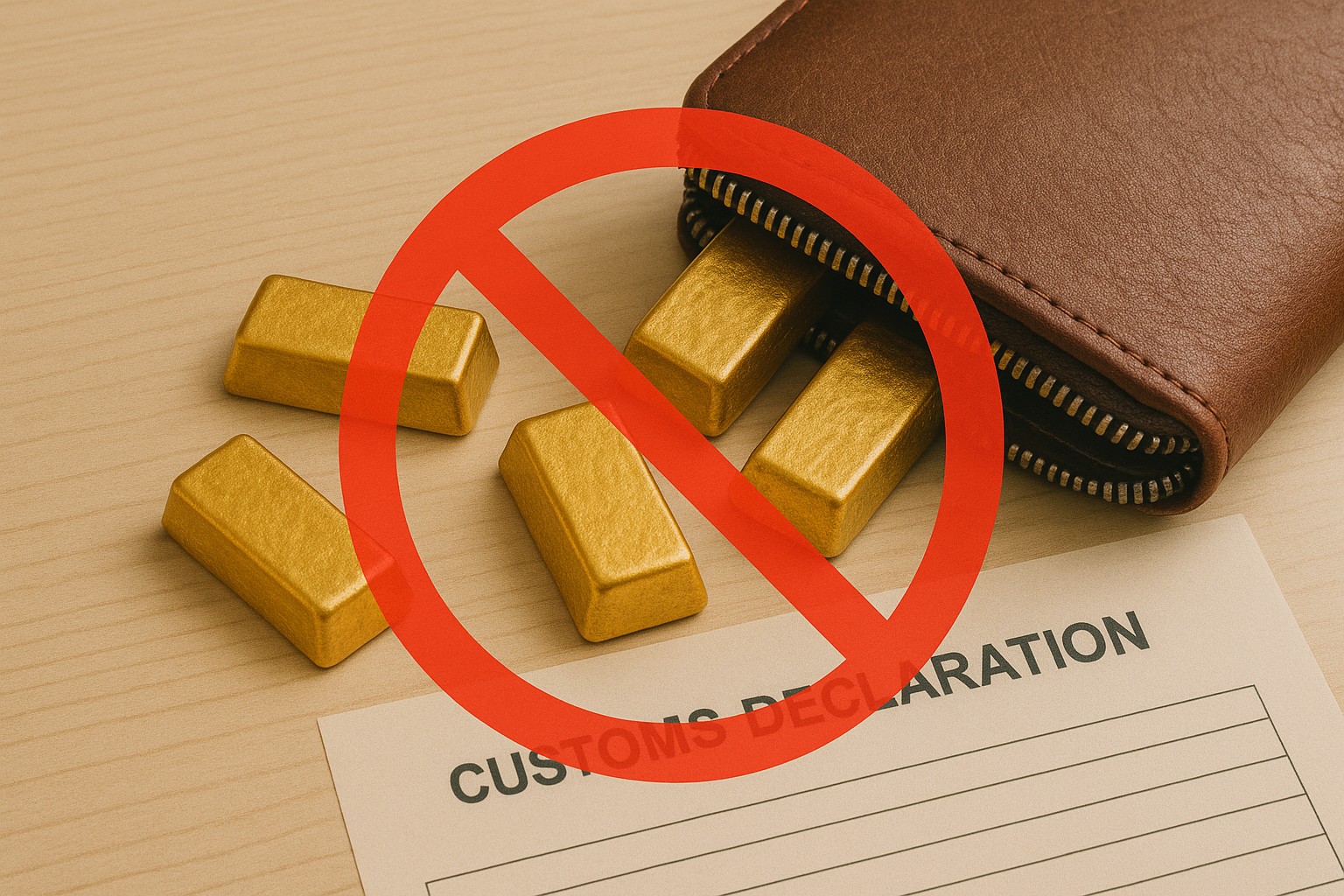Travelling With Gold: A Guide
31/07/2025Daniel Fisher
Free & fully insured UK Delivery. Learn more
Secure & flexible payments. Learn more

Buyback Guarantee Learn more
Yes, it is legal to travel internationally with gold, but doing so responsibly requires more than just slipping a few coins into your suitcase. Whether you’re a gold investor, a collector moving between countries, or simply bringing gold as a gift, it’s important to understand the legal and logistical framework that governs how precious metals move across borders.
One of gold’s greatest advantages is its portability. It holds substantial intrinsic value in a compact form, making it ideal for travel compared to other tangible assets. A small pouch of coins or a single gold bar can represent thousands in wealth, which is why gold has historically served as a trusted store of value in times of transition or uncertainty.
That said, the details and rules of moving gold matter. How much you carry, how it’s documented, and where you’re headed all influence what you can do legally. Some countries welcome gold imports with open arms; others have rigid limits and steep penalties. Almost all require declaration above certain value thresholds, and many demand proof of ownership or origin.
So before you board your next international flight with bullion or coins in tow, take a moment to learn the specific requirements. A bit of preparation can mean the difference between seamless travel and a very expensive delay.

Yes, flying with gold is legal, but airlines, customs officers, and airport security will have questions if you don’t follow the rules. Here’s how to stay on the right side of international travel laws:
If security personnel ask questions, be calm and direct. Transparency is key. Most issues arise from underreporting, not overreporting.
Free ultimate guide for keen precious metals investor
Every country has its own rules about how much gold you can bring in, and what kind of paperwork or taxes may apply. Always check these before travel, as laws and limits can change. Here’s a breakdown:

The UK allows travellers to bring in gold, but there are thresholds and conditions:
Pro Tip: Even if you’re under the threshold, having documentation helps if you’re questioned.

The US is open to gold imports, but transparency is vital:
Pro Tip: Contact the CBP 24 hours before travel if you’re unsure of procedures.

India has strict and complex gold import laws:
Pro Tip: Regulations differ by state, so check both central and regional rules before travelling. India CBIC.

Travelling to China with gold requires caution:
Pro Tip: Always declare your gold to avoid it being confiscated.

Australia allows gold travel but enforces strict reporting to the Australian Border Force (ABF):
Pro Tip: Use clear, labelled packaging and get a valuation letter from your dealer.

The UAE is gold-friendly but still requires transparency. Declaration can be made to the Federal Authority for Identity, Citizenship, Customs, and Security (UAE ICP).

Singapore has clear tax-exemption rules for gold:
Pro Tip: Make sure your bullion qualifies under Singapore’s Investment Precious Metals (IPM) Scheme.


Ensuring you understand some of the key gold jargon before your travels will help navigate the nuanced rules. Two terms which can cause the most confusion relate to the type of gold you’re carrying and ascertaining its value. Both pieces of terminology matter when crossing borders.
Refers to gold that is at least 995 parts per thousand pure and in the form of bars or coins intended for investment. Crucially, this means that gold jewellery is excluded.
Read a more in-depth assessment of investment grade gold.
Customs agents calculate the value of gold based on its market value, not its nominal coin face value. A coin marked “£100” like the UK Gold Britannia may be worth £2,000+ in gold content.

Before you travel, prepare the following:

Yes, but you must declare it if it exceeds the value limit in your destination or origin country. Always carry documentation and keep the gold in your hand luggage.
Yes, if its value exceeds the duty-free threshold or it’s not for personal use. Always check country-specific rules.
There is no universal limit, but you may need to declare it based on value. Airlines may have weight restrictions on carry-ons.
Gold coins are generally easier to carry, verify, and sell. They are also more discreet than bars.
Failure to declare can result in fines, delays, or confiscation. It’s always better to be transparent and over-prepared.
Live Gold Spot Price in Sterling. Gold is one of the densest of all metals. It is a good conductor of heat and electricity. It is also soft and the most malleable and ductile of the elements; an ounce (31.1 grams; gold is weighed in troy ounces) can be beaten out to 187 square feet (about 17 square metres) in extremely thin sheets called gold leaf.
Live Silver Spot Price in Sterling. Silver (Ag), chemical element, a white lustrous metal valued for its decorative beauty and electrical conductivity. Silver is located in Group 11 (Ib) and Period 5 of the periodic table, between copper (Period 4) and gold (Period 6), and its physical and chemical properties are intermediate between those two metals.